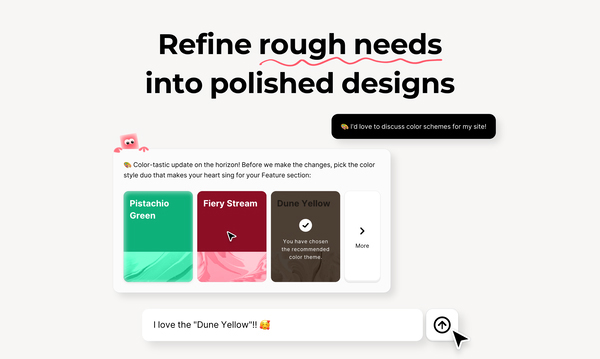Free Web Design Courses Best Practices
Free Web Design Courses Solutions
Free Web Design Courses
Web development is an ever-evolving field that plays a crucial role in building and maintaining websites. In today’s digital age, having a strong online presence is essential for businesses and individuals alike. From e-commerce websites to personal blogs, web development is a key component in creating functional and visually appealing websites. In this article, we will explore the world of web development and discuss the various technologies and tools used in the process.

Free Web Design Courses Checklist
Free Web Design Courses
Website builders are tools that allow users to create a website without needing to know how to code. They provide pre-designed templates and intuitive drag-and-drop features that make it easy for even the least tech-savvy individuals to create a professional-looking website. With hundreds of website builders available on the market, choosing the best one for your small business can be a daunting task. In this article, we will discuss some of the best website builders for small businesses to help you make an informed decision.
1. Wix
Wix is one of the most popular website builders on the market, and for good reason. It offers a wide range of professionally designed templates that are customizable to suit your business’s branding and style. Wix also has a user-friendly drag-and-drop interface that makes it easy to add text, images, videos, and other elements to your website. In addition, Wix offers a variety of features such as e-commerce functionality, blog integration, and SEO tools to help you optimize your website for search engines.
2. Squarespace
Squarespace is another highly popular website builder known for its sleek and modern templates. It is a great choice for small businesses in creative industries such as design, photography, or fashion, as Squarespace’s templates are visually striking and can be easily customized to showcase your work. Squarespace also offers e-commerce functionality, blogging capabilities, and built-in SEO tools to help you attract more visitors to your website.
3. Weebly
Weebly is a user-friendly website builder that is perfect for small businesses looking to create a professional-looking website quickly and easily. Weebly offers a variety of templates that are fully customizable, along with drag-and-drop functionality that allows you to create a website without any technical expertise. Weebly also provides e-commerce tools, blogging capabilities, and SEO features to help you grow your online presence.
4. Shopify
If your small business is primarily focused on selling products online, Shopify is the website builder for you. Shopify is an e-commerce platform that allows you to create a fully functional online store with ease. It offers a variety of customizable templates specifically designed for e-commerce, along with features such as inventory management, payment processing, and shipping options. Shopify also provides built-in SEO tools to help you attract more customers to your online store.
5. WordPress
WordPress is a powerful content management system that allows you to create a highly customizable website for your small business. While WordPress is more complex than some other website builders, it offers unparalleled flexibility and control over your website’s design and functionality. With thousands of plugins and themes available, you can create a website that perfectly suits your business’s needs. WordPress also provides e-commerce capabilities, blogging features, and SEO tools to help you create a successful online presence.
1. Wix
Wix is one of the most popular website building sites on the market, and for good reason. With Wix, you can choose from hundreds of customizable templates and easily drag and drop elements to create your website. Wix also offers a range of features such as a built-in blog, e-commerce capabilities, and SEO tools to help you drive traffic to your website. Additionally, Wix has a user-friendly interface that makes it easy for beginners to create a stunning website in a matter of hours.
2. Squarespace
Squarespace is another top website building site that is known for its sleek and modern templates. Squarespace offers a range of customization options, allowing you to personalize your website to fit your brand. With Squarespace, you can easily add images, videos, and text to create a visually appealing website. Squarespace also offers e-commerce capabilities, making it a great option for businesses looking to sell products online. Additionally, Squarespace has a built-in analytics tool that allows you to track traffic and engagement on your website.
3. WordPress
WordPress is a versatile website building platform that is used by millions of websites around the world. With WordPress, you have full control over your website’s design and functionality, making it a great option for those looking for more customization options. WordPress offers a wide range of themes and plugins that allow you to add features such as contact forms, social media integration, and e-commerce capabilities to your website. Additionally, WordPress is highly scalable, making it a great option for businesses of all sizes.
4. Weebly
Weebly is a user-friendly website building site that is perfect for beginners. With Weebly, you can choose from a range of professionally designed templates and easily customize them to fit your needs. Weebly also offers drag and drop functionality, making it easy to add elements such as images, videos, and text to your website. Weebly also offers e-commerce capabilities, making it a great option for small businesses looking to sell products online. Additionally, Weebly offers built-in SEO tools to help you drive traffic to your website.
5. Shopify
Shopify is a popular website building site that is specifically designed for e-commerce businesses. With Shopify, you can create a stunning online store with ease. Shopify offers a range of customizable templates and features such as product listings, payment processing, and order tracking. Shopify also offers a range of marketing tools to help you drive traffic to your online store. Additionally, Shopify offers 24/7 customer support to help you with any issues that may arise.

Quick Free Web Design Courses Guide
Free Web Design Courses
In conclusion, web app development is a complex and multi-faceted process that involves a combination of front-end and back-end technologies. By following a structured approach and using the right tools and technologies, developers can create dynamic and user-friendly apps that enhance the digital experience for users. From gathering requirements to deployment, each step of the development process is critical to ensuring the success of the app and meeting the needs of the target audience.


